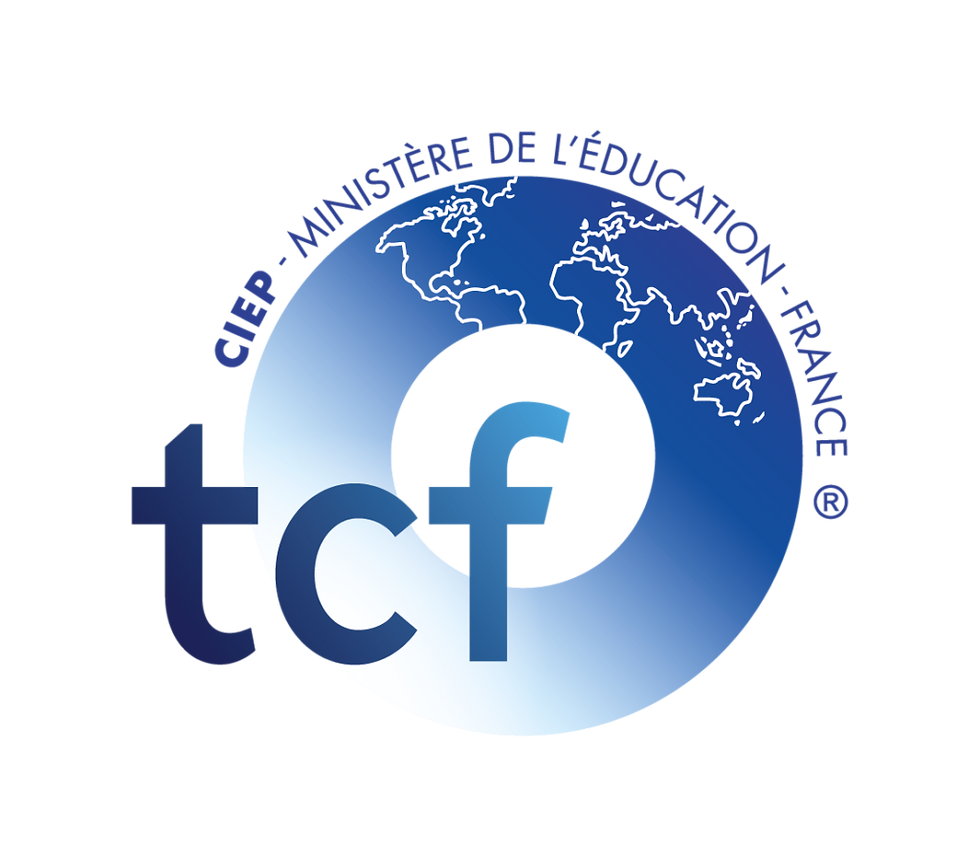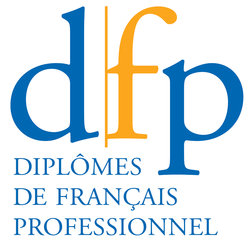La Prochaine Étape: Proficiency Tests & Certificates
- Geoffrey Thoma

- Jan 5, 2021
- 4 min read
One day you might find yourself wanting to apply to a master’s program at a French university or a job that requires you to use your French language skills, and you’ll have to back all that knowledge of yours up!
The good thing is, there are various official degrees and certifications recognized by the French government, French universities, and French employers that you can obtain to prove your skills. They determine your skill-level in alignment with the Council of Europe’s Common Framework of Reference for Language (CEFR), which organizes proficiency in six levels: A1/A2 (Beginner/Basic); B1/B2 (Intermediate/Independent); C1/C2 (Advanced/Proficient).
The difficult part is that there are a wide variety of certifications that overlap in many ways, yet are more appropriate for certain circumstances over others. So, to make it easier for you, I’ve put together an outline of the main certifications and degrees for you. This way, you can spend less time digging for this information and more time preparing for whatever is most useful to you — whether it be for advanced education* or for professional purposes!
*Most undergraduate and masters level programs at French institutions require at least B1 or B2
DELF & DALF

If you want to certify your French language skills for use in a professional environment or for pursuing an advanced degree at a French post-secondary institution, the DELF or the DALF degrees are a top choice.
The DELF Pro (Diplôme d’études en langue française à des fins professionnelles; in English, Diploma in French Language Studies for Professional Purposes) and the DALF (Diplôme approfondi de la langue française; in English, Diploma in Advanced French) are degrees granted by the French Ministry of Education via the Centre d’études internationales pédagogiques (CIEP; in English, Centre of Pedagogical Studies). Both are valid for life and are internationally recognized.
The DELF Pro exams are offered at four CEFR levels: A1, A2, B1, B2.
The DALF exams certify are offered at two CEFR levels: C1 and C2
Exams last anywhere between one hour and twenty minutes to four hours (follow the link in the information section for details about each exam’s structure). There are 1,165 examination centers worldwide in 174 countries. To find where a DELF/DALF testing center, follow click here to find the nearest location to you (For Portland, click here).
More information
TCF

The TCF (Test de connaissance du française) is another exam granted by the French Ministry of Educaiton via the Centre d’études internationales pédagogiques (CIEP).
Similar to the DELF and DALF exams, the TCF is useful for anyone wanting or needing to certify their French level for professional, educational, or personal reasons. Test results certify participants’ proficiency level in alignment with the CEFR scale, covering for all 6 levels (A1-C2).
However, the TCF differs from the DELF and DALF in terms of the certificate’s length of validity, as well as the structure of the test.
The TCF certificate is only valid for two years.
As for the structure, there are three required sections and two optional sections
The required section includes 76 items, lasts 1h. 25mins, and is composed of the following: listening comprehension (29 items, 25 mins); proficiency with lexical and grammatical structures (18 items, 15 mins); and reading comprehension (29 items, 45 mins) The optional sections include written expression (1 hour) and oral expression (12 minutes).
Lastly, there are several specialized TCF exams:
TCF DAP: For studying at a French University (note: I have not heard of this being necessary for study abroad. However, if you plan to enroll in a master’s program at a French university, the DELF, DALF, TCF, or TEF would be needed to demonstrate at least B1 or B2 proficiency).
TCF ANF: For applying for French nationality (minimum of B1 for French nationality, otherwise, A2 for permanent residency)
TCF for Québec: For emigrating to Québec, Canada
More information
**Some of these webpages are only in French. If you need to translate, I suggest using DeepL, which I find to be a much better and more accurate translator than Google Translate.
TFI

The TFI (Test de français international; in English, International French Test) is provided by Education Testing Service Global (ETS Global) and certifies the ability to communicate in French in the workplace. The TFI offers certification on CEFR levels between A2-C1, and the exam tests applicants on everyday vocabulary, phrases, and key expressions used in real-world situations
The test is structured into two sections, each including 90 multiple-choice questions, and takes two hours in total to complete. The first section covers listening comprehension, and you have 42 minutes to finish it; the second section on the other hand covers reading comprehension, and you have 68 minutes to complete it. Then, the remaining 30 minutes are dedicated to biographical questions at the beginning of the exam. Similar to the TCF certificate, the TFI certificate is valid for two years.
More information
For study resource, click here for the TFI Test Examinee Handbook
DFP

The DFP (Diplôme de français professionnel) is managed by the Paris Chamber of Commerce and Industry and measures the ability to use French in various professional fields, including business, international relations, and tourism/hospitality/catering. Certification is offered on CEFR levels between A1-C1, depending on the professional field you test for.
Exams include two parts. The first part of the exam tests for reading comprehension, oral comprehension, and writing proficiency. The first section takes between 45 minutes and two hours, depending on the CEFR level. The second part of the exam tests proficiency in oral expression, which comprises a conversation in French that lasts between 5 and 15 minutes depending on the CEFR level, and includes time to prepare.
More information



Comments